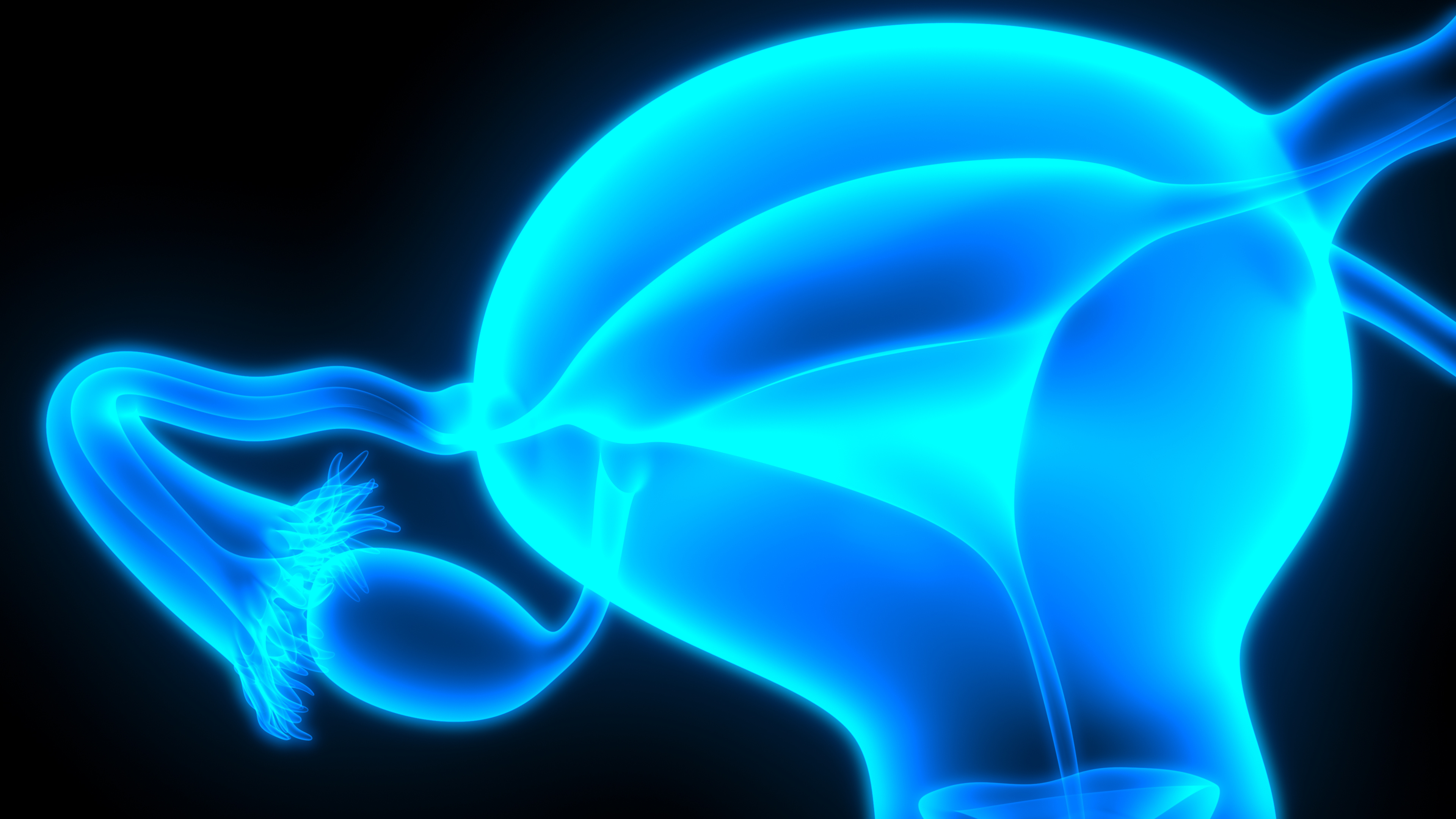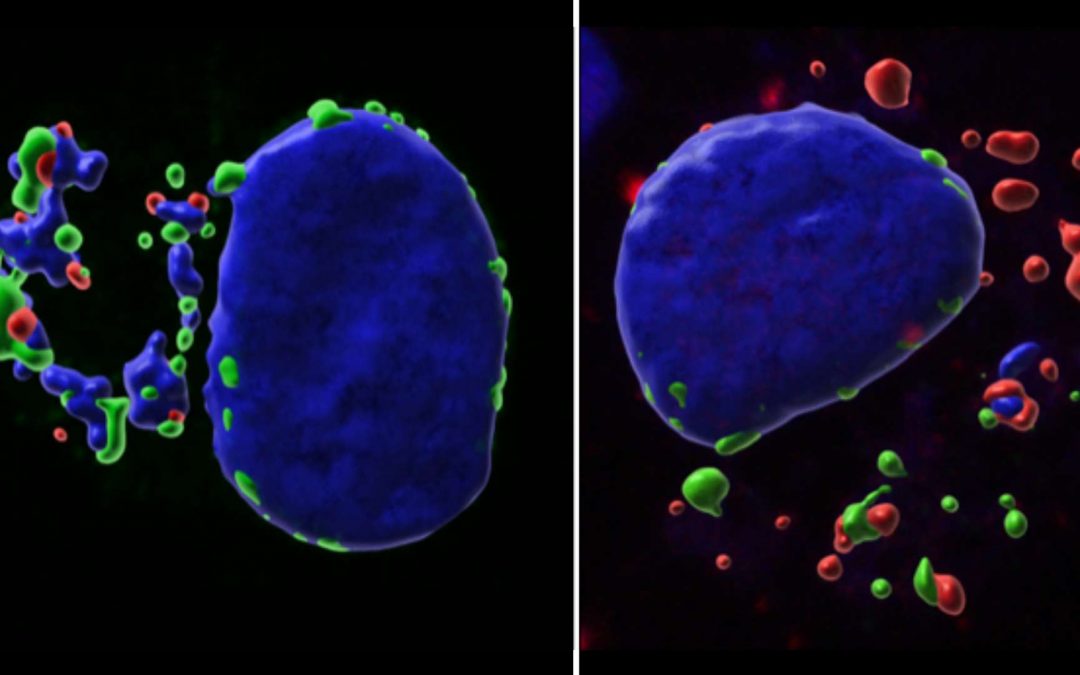MultiMENDo, Deciphering and Treating Endometriosis

Among the 3,000 submitted projects, 39 French projects were selected and secured ERC funding, including the MultiMENDo project led by Ludivine Doridot. Lecturer in physiology at the UFR of Medicine of the Faculty of Health at Université Paris Cité, Ludivine Doridot conducts her research at the Institut Cochin (U1016). Her research focuses on the biology of the uterus and placenta, more specifically on endometriosis and the involvement of the immune system in this disease.
A common gynecological disorder, endometriosis is a disease in which tissue similar to the lining of the uterus grows outside the uterus, forming lesions. It leads to inflammation and scar tissue forming in the pelvic region and (rarely) elsewhere in the body. Endometriosis affects approximately 1 out of 10 women of childbearing age. The disease is associated with pelvic pain, and infertility in 40% of women who are affected. However, the average diagnosis time is still estimated at 8 years and the available pharmacological options are not specific. The main options are hormonal treatments or surgery to eliminate the endometriosis lesions.
Endometriosis, what does it mean?
For all women, during menstruation, a small part of the menstrual fluid (blood and fragments of the uterine mucous membrane called endometrium) leaves through the fallopian tubes, this is called a retrograde menstruation. This part of the menstrual fluid then ends up in the peritoneal cavity and is usually eliminated naturally by the body, via the immune system. However, for about 1 woman out of 10, this natural process of elimination does not seem to work properly. There are two proposed reasons for this irregularity: the endometrial tissue in the peritoneal cavity is altered and has a greater than normal capacity to survive and proliferate, and the immune system does not manage to eliminate these fragments efficiently. These fragments form endometriotic lesions and cause chronic inflammation, which most often leads to pain and infertility.
Based on this observation, Ludivine Doridot chose to investigate menstrual fluid. It has the added advantage of containing both endometrial cells and immune cells, making it possible to study the two mechanisms considered crucial in the pathogenesis of endometriosis. Presently, research is unable to determine whether the failure to eliminate endometrial fragments in the retrograde menstrual flow is a reoccurring problem (with several menstrual cycles) or a one-time problem. This means that they can develop at some point in one’s life (during one or a few menstrual cycles) and last, without multiplying.
MultiMENDo Project: Diagnosing, Testing and Monitoring the Disease
With the MultiMENDo project, recipient of the ERC STarting Grant, Ludivine Doridot has proposed to use menstrual blood in a cohort of 200 patients with endometriosis and 50 control women to :
- Search for findings that will enable a prompt diagnosis (diagnostic markers) by identifying differences not only in the cellular composition but also among the molecules produced by these different cells in the menstrual fluid of women with endometriosis versus those without endometriosis.
- Create endometrial organoids from menstrual fluid to test new therapeutic approaches. For example, molecules capable of inhibiting the increased proliferation of endometrial cells in women with endometriosis or modulating the immune system to reduce inflammation associated with endometriosis and stimulate the elimination of menstrual cells. These organoids will be taken into cell culture with or without immune cells. They will be used to assess functional changes associated with endometriosis and to test new immunomodulatory treatments.
- Search for prognostic and/or predictive candidate markers to provide more effective follow-up of women with endometriosis. Patients who will undergo surgery or assisted reproductive technology (ART) will be monitored and their menstrual fluids analysed to assess markers of symptom progression and response to treatment. In surgery, menstrual fluid will be collected before and after to identify markers that are associated with severe pain symptoms. In the context of ART, menstrual fluids will be gathered from patients with and without endometriosis and compared with those of patients in whom embryo transfer will lead to pregnancy and those in whom it will not. Based on the analysis of the results, it is expected that candidate predictive markers will be identified that may be able to predict the success rate of ART in different types of patients.
Diagnostic and prognostic biomarkers are key to assessing the onset, progression and selection of the most appropriate treatment for this disease. This project will significantly improve the understanding of the pathophysiology of endometriosis and will lead to the study of a new biological fluid, relevant to gynecological and reproductive disorders.
The ERC, established by the European Union in 2007, is Europe’s leading funding agency for frontier research. It funds creative researchers of all nationalities and ages to conduct projects across Europe.
The ERC offers four core grant programs: seed grants, consolidation grants, advanced grants and synergy grants. Through its additional Proof of Concept Grants program, the ERC helps grantees bridge the gap between their pioneering research and the early stages of commercialization. The ERC is governed by an independent governing body, the Scientific Council.
The overall budget for the period 2021-2027 is more than €16 billion under the Horizon Europe program. This year, 408 researchers have been awarded ERC funding for a total amount of €636 million.
Read more

Theileria annulata and Cancer: a parasite strategy revealed!
A new study from Prof. Jonathan Weitzman’s research team at the Epigenetics and Cell Fate unit has shed light on the mechanism by which the parasite Theileria annulata, which causes a cancer-like diseases in cattle, evades the host cell’s defense mechanism.
read more
Paris-Oxford Partnership (POP) Annonces its Results
The Paris-Oxford Partnership (POP) Evaluation Committee, composed of Université Paris Cité, CNRS, Institut des Etudes Avancées and Oxford University, announces the results of its calls for projects. The call aimed to facilitate and strengthen scientific collaborations...
read more
Paris-Toronto Partnership launches its First Call for Proposals
Université Paris Cité and the University of Toronto are joining forces to launch their first call for proposals to support collaborative research initiatives. ObjectivesThe aim of the fund is to provide initial support for the development of research links and...
read more![[In Conversation] with Professors Anne Abeillé and Gabriela Bîlbîie](https://u-paris.fr/wp-content/uploads/2024/02/2024_PHOTOS-CHERCHEURES-1080x675.jpg)
[In Conversation] with Professors Anne Abeillé and Gabriela Bîlbîie
As part of Université Paris Cité's international guest researcher programme, Prof. Anne Abeillé is hosting Prof. Gabriela Bîlbîie, from the University of Bucharest in Romania. Our two professors are linguists specialising in theoretical and experimental syntax. We...
read more